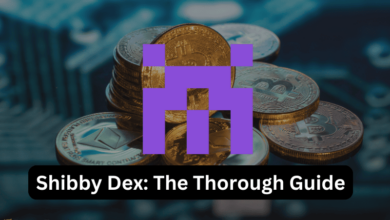Understanding Cryptocurrency in 2025: A Guide to Hokk Coin Price and Market Trends

Cryptocurrencies have evolved rapidly over the past decade, becoming a prominent feature in both the financial and tech sectors. From Bitcoin’s inception in 2009 to the rise of countless other digital assets like Ethereum, Solana, and Hokk Coin, cryptocurrency is no longer just a niche interest it’s become a mainstream financial phenomenon. Whether you’re just starting your crypto journey or looking to deepen your understanding, this guide will provide the latest insights into the world of cryptocurrency, with a focus on Hokk Coin Price and its role in the market.
What Is Cryptocurrency?
At its core, cryptocurrency is a form of digital currency that uses cryptographic techniques to secure transactions, manage the creation of new units, and verify the transfer of assets. Unlike traditional currencies such as the Euro or US Dollar, cryptocurrencies operate on decentralized networks, often utilizing blockchain technology to ensure transparency and security.
The key difference between traditional currencies and cryptocurrencies is trust. Traditional currencies are controlled and regulated by central banks, whereas cryptocurrencies function on peer-to-peer networks, removing the need for intermediaries like banks or payment processors. This decentralized nature of crypto transactions offers greater efficiency, security, and lower transaction fees.
How Do Cryptocurrencies Work?
Most cryptocurrencies, including popular ones like Bitcoin and Ethereum, are built on blockchain technology. Blockchain serves as a digital ledger where all transactions are recorded in a transparent and immutable way. The technology is decentralized, meaning that no single entity controls it — rather, a network of computers (nodes) verifies and confirms transactions.
Here’s how it works:
-
Blockchain: Think of blockchain as a chain of blocks where each block contains a record of transactions. Once a block is completed, it is linked to the previous block, forming a chain. This makes it incredibly difficult to alter or tamper with past transactions.
-
Decentralized Verification: In traditional financial systems, banks or other central authorities verify transactions. In the case of cryptocurrencies, the network of nodes verifies transactions using consensus algorithms like Proof of Work (PoW) or Proof of Stake (PoS).
-
Cryptography: The cryptographic techniques used in cryptocurrencies ensure the security and integrity of transactions. Public and private keys are used to send and receive funds securely, making fraud or double-spending highly unlikely.
Paying with Cryptocurrency
You might wonder: Can I actually use cryptocurrencies like Hokk Coin to buy goods and services? The answer is yes. A growing number of online stores, service providers, and even physical locations now accept Bitcoin, Ethereum, and other cryptocurrencies as payment.
Here’s how to get started:
-
Cryptocurrency Wallet: To make transactions, you’ll need a cryptocurrency wallet. This is a software application that stores your public and private keys. Your wallet allows you to send and receive cryptocurrencies securely. Examples of popular wallets include MetaMask, Trust Wallet, and Coinbase Wallet.
-
Payment Methods: Depending on the vendor, you can pay with various cryptocurrencies like Bitcoin (BTC), Ethereum (ETH), or newer coins like Hokk Coin. Many platforms integrate payment processors that automatically convert crypto into fiat currency if needed.
You can buy everything from NFTs to video game land using cryptocurrency. However, it’s essential to understand the volatility and risks involved, especially if you’re holding a less-established coin like Hokk Coin.
How Many Cryptocurrencies Exist Today?
As of 2025, there are over 6,000 cryptocurrencies actively traded. This is a significant increase from fewer than 70 coins in 2013. While Bitcoin remains the leader in terms of market capitalization, many other altcoins are gaining traction, particularly those with strong use cases in decentralized finance (DeFi), non-fungible tokens (NFTs), and smart contract platforms.
Among the most popular cryptocurrencies are:
-
Bitcoin (BTC): The original and most widely recognized cryptocurrency.
-
Ethereum (ETH): Known for its smart contract capabilities and DeFi applications.
-
Litecoin (LTC): Created as a faster alternative to Bitcoin, Litecoin has gained significant market interest.
-
Hokk Coin: A newer addition to the crypto market, Hokk Coin is gaining attention for its unique features and potential within specific niche markets.
What Determines the Value of Cryptocurrencies?
Cryptocurrency markets are notoriously volatile, with prices often fluctuating wildly within short periods. The value of a cryptocurrency is largely determined by supply and demand dynamics, influenced by factors such as:
-
Market Sentiment: If more people want to buy a particular cryptocurrency, its value will rise. If demand decreases, the value may fall.
-
Supply: Many cryptocurrencies, like Bitcoin, have a fixed supply (21 million BTC), which creates scarcity and can drive up prices as demand increases. Other coins may have inflationary models or higher circulating supplies.
-
Utility and Adoption: Cryptocurrencies that offer a unique utility, such as Ethereum for smart contracts or Hokk Coin for specialized platforms, may see an increase in value as their adoption grows.
-
Market Events: News, regulations, and global economic events can also impact the price. For example, institutional investment or regulatory changes in major economies can send prices soaring or crashing.
Cryptocurrency Mining: The Backbone of the System
Cryptocurrency mining is the process by which new coins are introduced into circulation and transactions are confirmed on the blockchain. While Bitcoin mining is well-known, many other cryptocurrencies also rely on mining, though some use alternatives like staking to achieve consensus.
Here’s how mining works:
-
Proof of Work (PoW): In PoW systems (e.g., Bitcoin), miners solve complex cryptographic puzzles using powerful computers. The first miner to solve the puzzle adds a new block to the blockchain and is rewarded with newly minted coins.
-
Proof of Stake (PoS): In PoS-based systems (e.g., Ethereum 2.0), validators are chosen to create new blocks based on the number of coins they hold and are willing to “stake” as collateral. This reduces the energy consumption seen in PoW systems.
While mining can be profitable, it requires significant computational power and energy, making it increasingly difficult to mine cryptocurrencies profitably without specialized hardware or access to cheap electricity.
How to Invest in Cryptocurrency
To invest in cryptocurrency, you’ll need to use a cryptocurrency exchange. Some popular exchanges include:
-
Binance: One of the largest global exchanges, offering a wide variety of cryptocurrencies and trading pairs.
-
Coinbase: A user-friendly platform ideal for beginners, offering secure storage for cryptocurrencies.
-
Kraken: A platform known for its robust security and advanced trading features.
How to Invest:
-
Create an Account: Sign up on an exchange and complete identity verification if necessary.
-
Deposit Funds: Deposit fiat money (e.g., USD, EUR) or other cryptocurrencies into your exchange account.
-
Place an Order: Buy your desired cryptocurrencies (Bitcoin, Ethereum, or Hokk Coin). You can place market orders (buying at the current price) or limit orders (buying at a price you set).
-
Secure Your Assets: Consider transferring your assets to a personal wallet for enhanced security.
Is Investing in Cryptocurrencies Risky?
Yes, investing in cryptocurrencies is risky. The market is highly volatile, and prices can swing dramatically in short periods. Some risks to consider:
-
Price Volatility: The price of cryptocurrencies like Hokk Coin can fluctuate significantly due to market sentiment, news, and regulatory changes.
-
Security Risks: While blockchain technology is secure, exchanges and wallets can be hacked. Always use two-factor authentication and secure storage methods.
-
Regulatory Risks: The lack of regulatory clarity in many countries makes the cryptocurrency space unpredictable, as new regulations could impact prices or market accessibility.
To mitigate risk, consider diversifying your portfolio by investing in a mix of cryptocurrencies and traditional assets, and use secure wallets for long-term storage.
Why Are Cryptocurrencies So Popular?
Cryptocurrencies have gained massive popularity for several reasons:
-
Low Fees: Cryptocurrencies typically have lower transaction fees compared to traditional banking systems.
-
Speed: Cryptocurrency transactions can be processed much faster than traditional bank transfers, especially for cross-border payments.
-
Security: Blockchain’s transparency and immutability make it highly secure and resistant to fraud.
-
Decentralization: The lack of government control appeals to users who value privacy and financial sovereignty.
-
Profit Potential: Many investors are drawn to cryptocurrencies due to their speculative nature, with the potential for high returns.
FAQs About Cryptocurrencies
Q1: What is Hokk Coin?
Hokk Coin is a relatively new cryptocurrency that is gaining attention in the market. It is designed for specific use cases and offers a range of features that make it an attractive investment for users looking to diversify their portfolios.
Q2: How do I store my cryptocurrency safely?
You can store your cryptocurrency in a cryptocurrency wallet. For enhanced security, consider using a hardware wallet (e.g., Ledger or Trezor) to store your coins offline.
Q3: How do cryptocurrencies gain value?
Cryptocurrencies gain value based on supply and demand, market sentiment, utility, and the level of adoption they achieve. Scarcity, such as Bitcoin’s capped supply, can also drive demand.
Q4: What are the risks of investing in cryptocurrencies?
The main risks include price volatility, security vulnerabilities, and regulatory uncertainties. It’s important to do thorough research and only invest what you can afford to lose.
Q5: How can I buy cryptocurrency?
You can buy cryptocurrencies like Hokk Coin on exchanges such as Coinbase, Binance, and Kraken by creating an account, depositing funds, and placing a buy order.
Conclusion
Cryptocurrencies continue to shape the future of finance, offering exciting opportunities and challenges for investors and users alike. With platforms like Hokk Coin providing unique value propositions, the space is becoming increasingly diverse. Whether you’re a beginner or an experienced investor, it’s crucial to stay informed, assess the risks, and make educated decisions to navigate this dynamic market successfully.
For the latest trends, updates, and insights into cryptocurrencies, subscribe to our newsletter or share your thoughts in the comments below!





